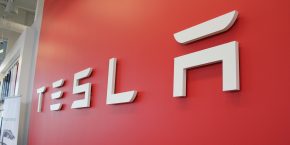
Chinese battery cell manufacturer Gotion High-Tech confirmed that it entered into a very important deal to supply LFP battery cells to an unnamed “large US automaker” and partner with that automaker to deploy US production of LFP battery cells.
Tesla is rumored to be that unnamed automaker.
Currently, there is no US production of iron phosphate (LFP) battery cells and it’s a problem for Tesla, which recently announced it’s transitioning all its “standard range vehicles” to the battery chemistry globally.
China’s Gotion, which counts on German automaker VW amongst its shareholders, announced the framework of an important agreement via a filing on the Shenzhen Stock Exchange.
The company announced that it agreed to supply at least 200 GWh of LFP battery cells to a large US automaker between 2023 and 2028.
The cells would come from Gotion’s Chinese operations at first, but the agreement also includes a component to bring LFP battery cell production to the US.
Gotion wrote in the filing (translated from Chinese):
“Expansion and localization of production lines. U.S. Guoxuan agreed to allocate the company’s existing or new domestic to build production capacity and build new production capacity in the United States to meet the customer’s battery procurement needs.”
The deal also includes an option for a joint-venture LFP battery factory in the US with the automaker (translated from Chinese):
“Joint venture to build a factory: The two parties will conduct friendly consultations on the establishment of joint ventures or other cooperative efforts. Jointly explore the possibility of establishing a joint venture company. In addition to the joint venture to build battery production bases, the scope of joint ventures. The scope may cover investments in upstream materials and downstream battery recycling industries.”
Now, who is this US automaker that Gotion is partnering with?
The company remains vague about the partner, but here’s the relevant section describing the automaker and the deal in the filing (translated from Chinese):
“Guoxuan Hi-Tech Co., Ltd. (hereinafter referred to as the “Company”) overseas wholly-owned grandson company GOTION, INC.(Hereinafter referred to as “U.S. Guoxuan”) is the supplier of a large listed automobile company in the United States (hereinafter referred to as “the customer”) Respond to business. In order to further deepen the cooperation, the United States Guoxuan and the customer recently signed the “Strategic Supply and Localization Agreement” (ie “Strategic Supply and Localization Agreement”, hereinafter referred to as “this agreement”), The two parties hope to reach a strategic agreement on the supply and procurement of lithium iron phosphate batteries (hereinafter referred to as “LFP batteries”).do. On the one hand, based on the customer’s needs, the company will export LFP through its battery production base in mainland ChinaBatteries; on the other hand, the two parties plan to localize the production and supply of LFP batteries in the United States and jointly discuss future the possibility of establishing a joint venture company. The above-mentioned LFP battery products will be used in the customer’s US and global markets electric cars and other applications.”
Electrek’s Take
Technically, it could be any US automaker, but Tesla certainly fits the bill.
The fact that they mentioned a “large listed automobile company in the US” and there’s no larger listed automaker in the US than Tesla.
As a minority shareholder in Gotion, VW would make sense, but it is obviously a German automaker, and the filing mentions that there was no prior relationship with the automaker involved.
The agreement also mentions using the cells in electric cars and “other applications,” which could mean stationary energy storage products, like Tesla Powerwalls, Powerpacks, and Megapacks.
But the biggest tell of all might be the actual volume involved in the deal.
200 GWh of LFP cells between 2023 and 2028 is a lot.
Considering LFP cells are used for smaller and shorter-range vehicles, the deal could support the production of over half a million electric cars per year.
When you consider that Tesla has been open about its shift to LFP cells and that it’s likely the only automaker that would need that many LFP cells in the US starting in just over a year, it’s likely that Tesla could be behind the deal. However, it’s still only speculation at this point.
FTC: We use income earning auto affiliate links. More.




Comments